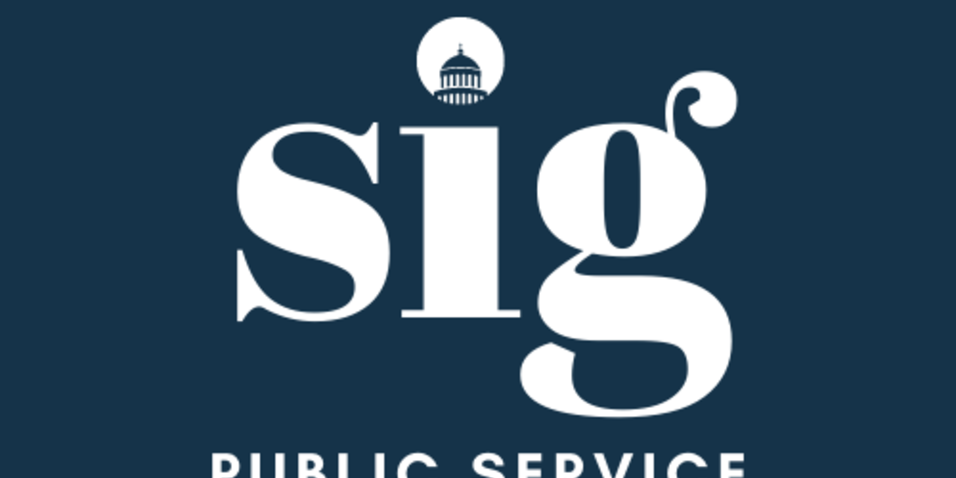
2024 Environmental Policy Internships in CA (EPIC): California State Lands Commission
About EPIC:
The State of California is a leader in developing cutting-edge policies in response to climate change and other environmental and natural resource challenges. Other states, the federal government and nations follow and seek to imitate California's forward-thinking public policy efforts. The Stanford Woods Institute identifies key state agencies and decision-makers who are addressing these pressing environmental issues to create exciting summer internship placement opportunities for Stanford undergraduates.
Woods, in collaboration with the Haas Center for Public Service and Stanford in Government, offers undergraduates paid summer internships that provide a hands-on introduction to environmental policy work. The fellowships are full-time (35-40 hours/week) for 10 or 12 consecutive weeks. Students who are selected will receive mentoring from environmental professionals and directly contribute to solving important sustainability challenges that are facing the public. EPIC fellows receive a $7,500 - $9,000 stipend (for 10 weeks) or $9,000 - $10,500 (for 12 weeks of work), depending on financial need.
About the California State Lands Commission:
The Commission, comprised of California’s Lieutenant Governor, State Controller, and Governor’s Director of Finance, is an independent and dynamic public land management agency. The Commission manages over 4 million acres of tide and submerged lands and the beds of navigable rivers, streams, lakes, bays, estuaries, inlets, and straits. These lands, often referred to as sovereign or public trust lands, stretch from the Klamath River and Goose Lake in the north to the Tijuana Estuary in the south, the Colorado River in the east, and from the Pacific Coast 3 miles offshore in the east to the world-famous Lake Tahoe in the east, and includes California’s two longest rivers, the Sacramento and San Joaquin. The Commission, in its capacity as a landowner, protects and enhances these lands and their underlying natural resources by issuing leases for use, development, and environmental preservation, championing public access, and resolving boundaries between public and private land.
The Commission is organized by divisions. Below is a summary of our key divisions.
Division of Environmental Science, Planning and Management
Our Environmental Science, Planning, and Management Division ensures compliance with CEQA and prepares Environmental Impact Reports, Mitigated Negative Declarations, and other documents for projects affecting the environment. The Division administers California’s world-leading marine invasive species prevention program. It also leads our Climate Adaptation and Special Initiatives team that supports the Commission on a range of topics, including climate change and adaptation, offshore wind planning and coordination, forestry, aquaculture, and marine protected areas.
Land Management Division
Our Land Management Division manages over 4 million acres of public lands (mainly tide and submerged lands) and a portfolio of more than 4,100 leases that authorize major renewable energy projects, piers, marinas, and utility lines, among other things. We make critical title and boundary determinations that are foundational to our work. Our Land Management Division also manages more than 500,000 acres of land, known as school lands, that are scattered throughout the desert and forested areas of Northeastern California. Our school lands generate revenue for retired teachers and are used for renewable energy generation.
Marine Environmental Protection Division
Our Marine Environmental Protection Division inspects marine oil terminals and bulk oil transfer operations at these terminals to provide the best achievable protection of public health, safety, and the environment. Our engineering team conducts inspections daily, biennially, and annually. Our inspections include marine pipelines, review of oil spill prevention requirements, and operational personnel training.
Mineral Resources Management Division
Our Mineral Resources Management Division is responsible for the safe and environmentally sound development, regulation, and management of energy and mineral resources. We also administer a coastal hazard and legacy oil and gas well removal and remediation program and manage, inspect, and audit California’s remaining offshore oil and gas platforms and production. This division also leads our oil and gas decommissioning projects, including Platform Holly and Rincon Island in Southern California.
External Affairs/Executive
The Executive Office plans, organizes, manages, coordinates, and administers the Commission’s work. The Executive Office leverages the expertise of staff in each division to accomplish the Commission’s mission, vision, and strategic plan objectives while responding to emerging challenges. Our tribal and environmental justice programs are in the Executive Office.
The External Affairs Division manages state and federal legislation, the Commission’s website, and its social media. The External Affairs Division also manages what is known as our granted lands program, which includes land legislatively granted to over 70 ports, harbors, and coastal cities and counties, and which the Commission oversees. The External Affairs Division manages communications and media relations and, together with the Executive Office and other divisions, represents the Commission on various boards and commissions, including the San Francisco Bay Conservation and Development Commission and the California Coastal Commission.
Position Description:
While we list potential projects below, we want to make the internship as mutually beneficial and rewarding as possible. We envision an onboarding process with the opportunity to meet and learn about each division and various projects and then, together with the intern hosts, develop a portfolio of projects that will be worthwhile and interesting. We envision a mix of smaller, day-to-day projects and one bigger, long-term project spanning the length of the internship.
Potential Projects:
- Assist Commission staff with issues where science and policy interface and learn how staff navigates complex and politically sensitive issues, including adaptation to climate change and sea-level rise; equity and environmental justice in public land management; offshore wind energy development; plastic pollution reduction; transitioning to a fossil-free future; and offshore oil and gas decommissioning.
- Conduct research, collaborate with Commission staff and sister agencies, and support efforts to implement the Commission’s Environmental Justice Policy.
- Learn about the legislative process and experience it firsthand. Conduct legislative research, assist with writing bill analyses, testimony for committee hearings at the State Capitol, and staff reports for the public and commissioners. Participate in legislative discussions with legislative staff and lobbyists.
- Assist staff in a variety of divisions with projects that may involve oil and gas decommissioning, offshore wind energy development, waterfront redevelopment. and other emerging environmental public policy.
- Assist with developing social media content and updating the Commission’s website.
- Assist with developing press/media strategies and content.
Desired Qualities, Skills and Abilities:
- Excellent written and verbal communication skills
- Enthusiasm, curiosity, and a desire to learn and contribute
- Ability to think critically
- Self-motivated
- Well organized
- Experience with or interest in developing website content or social media
- Familiarity with Outlook, Microsoft Word, and other basic office programs
Logistics:
- Internship Location: Preferably hybrid (1 – 2 days in our Sacramento office located at 100 Howe Avenue) but will consider fully remote or fully in-person options.
- Preferred start date: Between 6/17 and 6/24
- EPIC fellows have the option to work full-time (35+ hours per week) for 10 weeks (stipend: $7,500-$9,000, depending on financial need) or 12 weeks (stipend: $9,000-$10,500, depending on financial need) over the summer.
Eligibility
Eligibility:
Undergraduates from all academic disciplines are encouraged to apply, and applicants may vary in academic interests, public service involvement, and experience. Students must be enrolled for winter and spring quarters of this year and be in good academic standing to be eligible for a fellowship. Applications will only be accepted from students who will be enrolled as undergraduates for the following academic year, so unfortunately, graduating seniors cannot apply. The one exception to this rule is seniors who will be working toward a co-term degree during the following academic year. Co-term students must not have their undergraduate degree conferred until Fall 2024 to be eligible. Please refer to the Haas Center for Public Service's website for additional Cardinal Quarter Undergraduate Fellowship Program Policies and Requirements.
Note: students are only eligible for one Stanford-funded full-time experiential learning opportunity during the summer, and are not permitted to engage in another full-time internship, job, coursework, or volunteer opportunity. Students are responsible for arranging and paying for their own housing and transportation during the fellowship.
Requirements:
Fellows are required to work at least 35 hours/week for ten or twelve consecutive weeks at their placements. Fellows are expected to have a designated full-time professional staff member as their supervisor/mentor. Please review the entire FAQs section for program policies. Other commitments include the following:
Spring Quarter:
- Commit to working full-time (35-40 hours week) for 10 or 12 consecutive weeks (depending on which option you select)
- Complete an online program orientation through the Haas Center for Public Service
- This will include designing a personal learning plan that you will share with your site supervisor and academic mentor
- Complete the Engaging in Ethical and Effective Service in-person workshop or worksheet
- Meet with your assigned Stanford academic mentor at least once prior to the start of the fellowship (more check-ins during and after your experience are encouraged)
- Attend EPIC cohort building events and activities in spring quarter, as your schedule allows
- Complete and submit all required forms and paperwork
Summer Quarter:
- Engage in your full-time fellowship (starting no later than July 8, 2024; exact start date to be determined with your site supervisor)
- Attend EPIC cohort building events and activities in the summer, as your schedule allows
- Submit a mid-summer evaluation
- Submit a final project report, complete a program evaluation, and correspond with donor(s) as requested by program staff
Fall Quarter:
- Debrief with your academic mentor at least once
- Attend a de-briefing meeting for the purpose of reflecting upon and evaluating summer experiences
- Participate in outreach activities to share your experiences and help publicize the program


